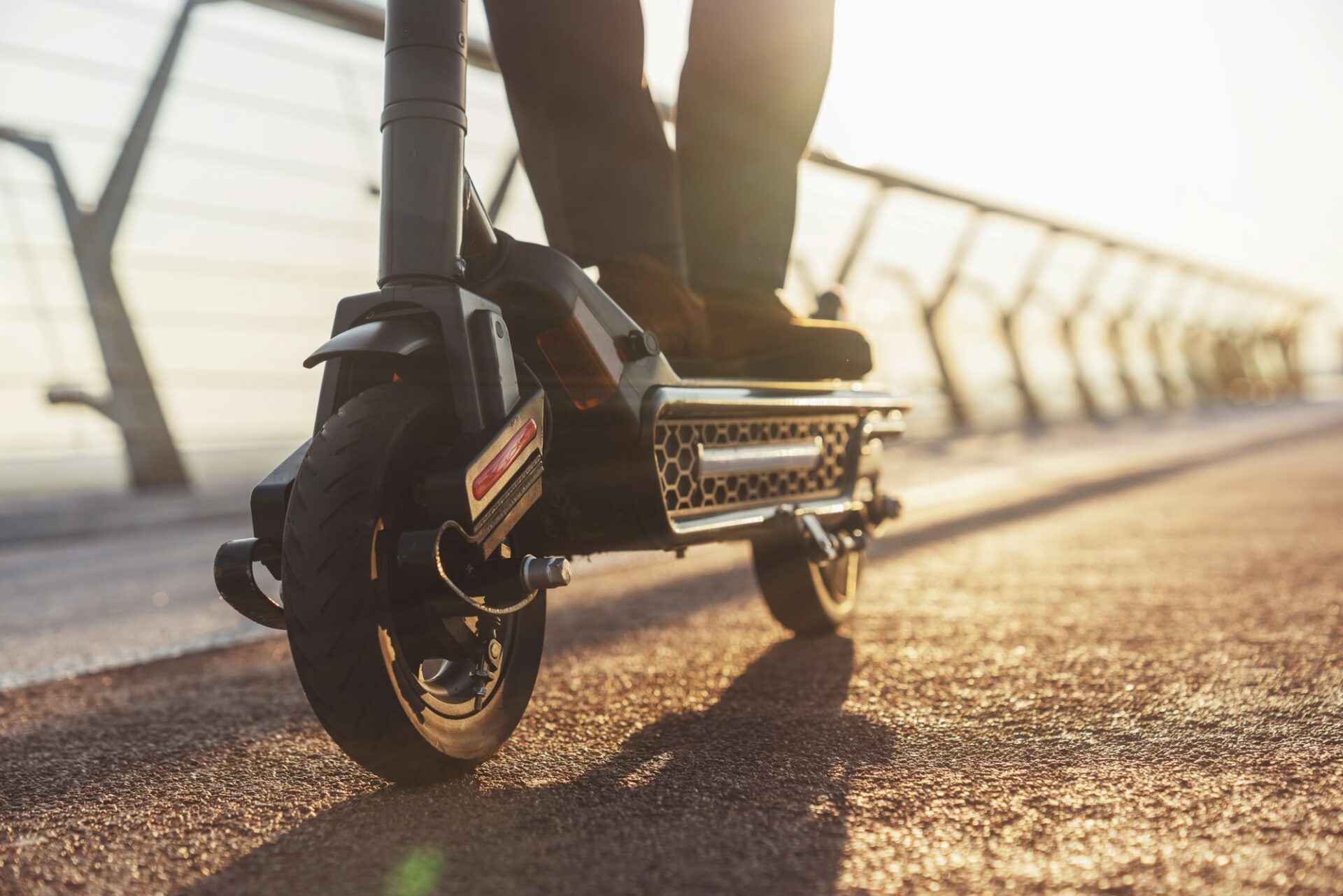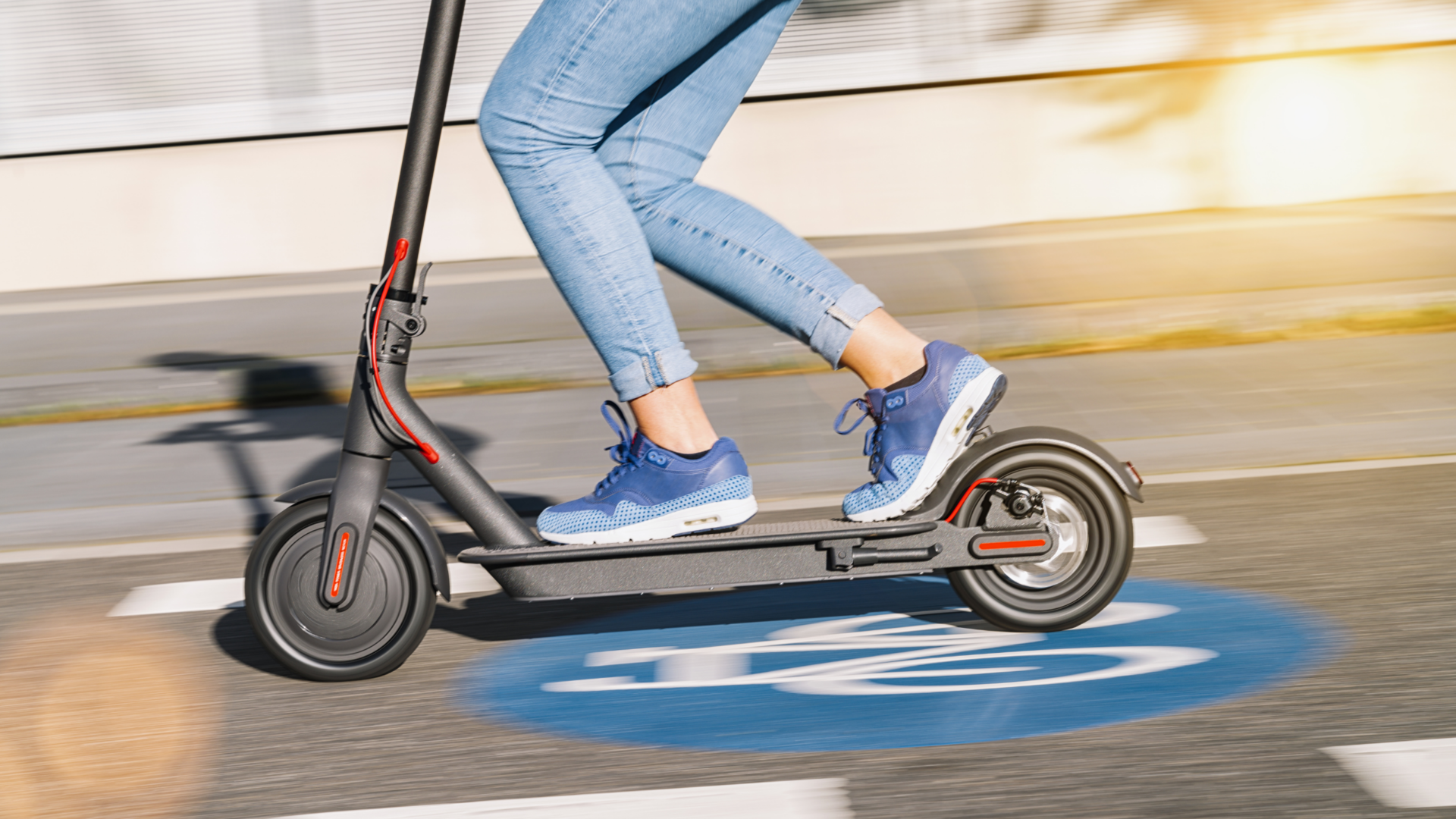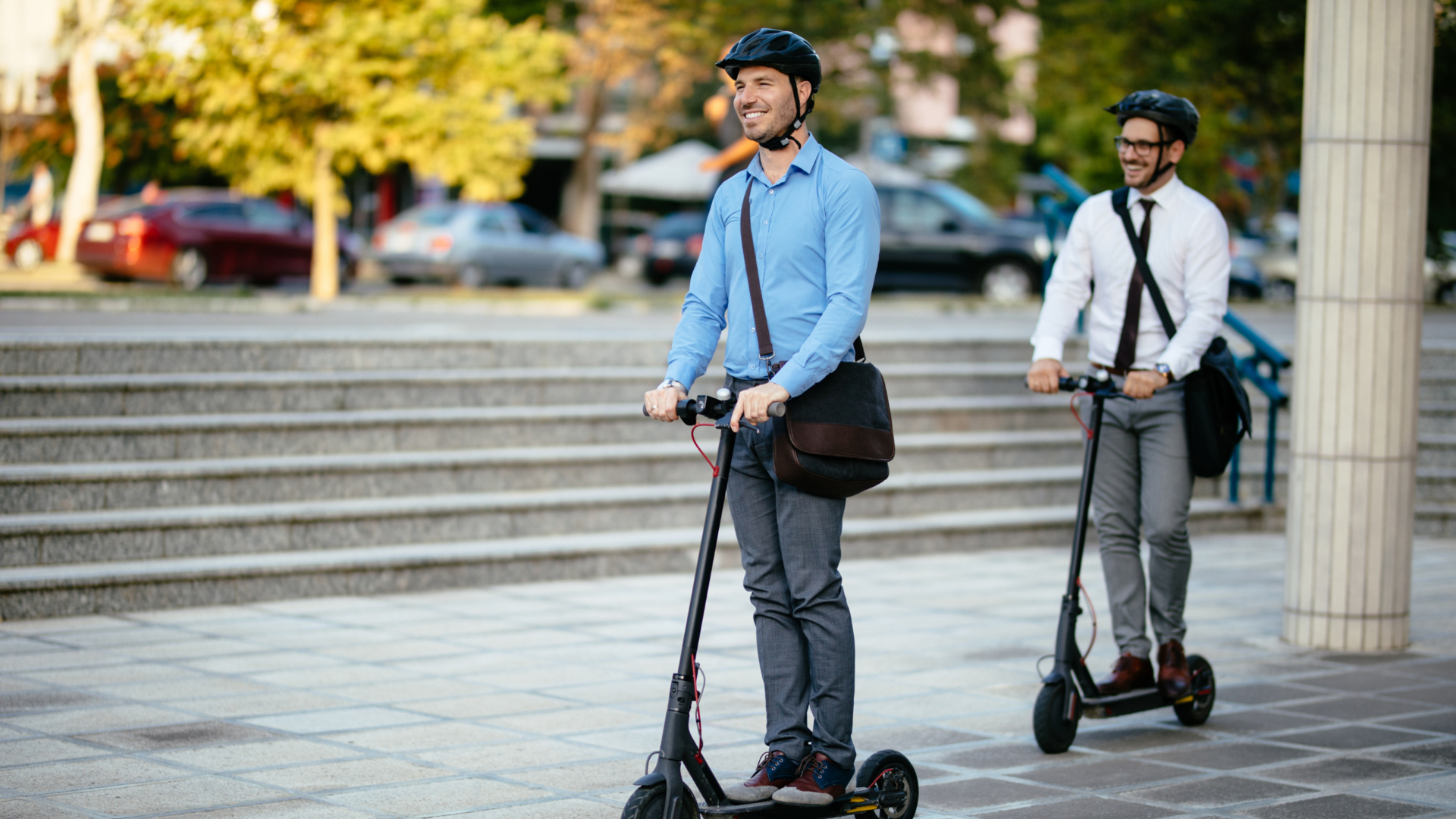Electric scooters have zoomed onto the scene as a convenient and eco-friendly mode of transport. However, their rapid rise in popularity has also brought about a slew of questions, particularly regarding their legal requirements. One of the most frequently asked questions is: do electric scooters require a license? Understanding the legal landscape when it comes to scooters can be a bit of a maze, but worry not — we’ve got you covered.
In this comprehensive guide, we’ll delve into all the crucial details, from licensing requirements to safety regulations and fines. Whether you’re a prospective scooter owner or simply curious, this article will equip you with the knowledge to navigate the world of electric scooters with confidence.

Understanding Electric Scooter Licensing Requirements
Determining whether you need a valid license or any specific certification to operate an electric scooter legally varies based on local jurisdiction. It is crucial to familiarize yourself with the rules in your area to avoid any legal issues.
Driver’s License Requirement
- In many regions, a standard driver’s license is not required to operate an electric scooter.
- Some areas may have specific licensing requirements, particularly for higher-powered scooters that exceed a certain speed or wattage.
- Always check local laws to confirm if a valid driver’s license is necessary.
Special Certification or Permits
- Some municipalities may require a special permit or certification to legally ride a scooter.
- These permits are often straightforward to obtain and may involve a simple application process or a brief training session on safety regulations.
- Check with local government or transportation agencies to see if special permits are mandatory.
Insurance and Registration
- In certain regions, insurance for scooters may be required, although this is less common than for cars or motorcycles.
- Registration requirements can also differ, particularly for scooters of higher power classifications. Always confirm if your scooter needs to be registered.
Adhering to Local Regulations
- Always make sure to research regulations in your area. This can be done through the local Department of Motor Vehicles (DMV) or city/town hall websites.
- Failing to comply with local laws can result in fines and penalties, which can be easily avoided with proper knowledge.
By understanding and adhering to the licensing requirements in your jurisdiction, you can ensure that you are operating your scooter legally and safely. In the next section, we will delve deeper into the specific electric scooter laws and regulations that may apply to you.

Electric Scooter Laws and Regulations
Laws and regulations can vary significantly depending on your location. These rules are put in place to ensure the safety of all road users and to manage the growing popularity of electric scooters. Understanding these laws is crucial for operating your scooter legally and safely.
General Electric Scooter Laws
- Street Legality: In many areas, electric scooters are permitted to operate on public streets but often have to adhere to specific lane usage rules. Some jurisdictions may restrict scooter usage on highways or major roads.
- Sidewalk and Path Use: Motor scooters are often restricted from sidewalks to prevent accidents with pedestrians. Instead, they should be used on bike lanes or designated paths where available.
- Speed Limits: Most regions impose speed limits on electric scooters, typically ranging from 15 to 20 mph. Exceeding these limits can result in fines or penalties.
Specific Regional Regulations
- Local Ordinances: Municipalities may have their own set of rules and ordinances governing e-scooter use. Always check with local authorities to understand any city-specific regulations.
- State Laws: Some states have overarching street laws that can affect electric scooter operations. These can include restrictions on where scooters can be used, helmet requirements, and lighting requirements for night use.
Street and Path Use
- Designated Areas: Certain areas may designate specific lanes or paths for electric scooter use, improving safety and traffic flow on public roads.
- Shared Use Paths: In some locations, scooters can share bike paths with pedestrians but must follow specific rules to ensure safety and maintain the flow of traffic.
Safety Regulations
- Helmet Laws: Many regions mandate the use of helmets while riding electric bikes, especially for minors. Helmet usage is a critical aspect of scooter safety regulations.
- Lighting and Signaling: Requirements often include having front and rear lights and proper signaling systems to ensure visibility on the roads.
Insurance and Liability
- Electric Scooter Riders Insurance: While not universally required, some areas mandate insurance for scooters. This can cover damages or liabilities resulting from accidents.
- Liability: In the event of an accident, riders may be held responsible for damages, making it essential to understand local liability laws.
Being aware of these rules and regulations is essential. Not only does it help you stay on the right side of the law, but it also ensures your safety and the safety of others. In the next section, we will discuss the age requirements for operating scooters.

Age Requirements for Operating Electric Scooters
Age requirements for operating electric scooters can differ widely depending on the specific laws and regulations of each jurisdiction. Understanding these requirements is essential for ensuring legal and safe riding.
Minimum Age Limits
- In many regions, the minimum age for operation ranges between 16 and 18 years.
- Some areas may allow younger riders, typically with restrictions such as lower speed limits or mandatory adult supervision.
- Always check local age requirements to ensure compliance.
Age-Based Restrictions
- Speed Limitations: For younger riders, certain regions may impose lower speed limits to enhance safety.
- Supervision Requirements: Minors often need to be supervised by an adult or possess parental consent to operate an electric scooter.
- Course Completion: Some jurisdictions may require minors to complete a safety course before they can legally ride.
Age Verification
- Rental companies often have mechanisms for verifying age, such as requiring a scanned ID during the rental process.
- Retailers may also enforce age restrictions at the point of sale, particularly for high-powered models.
Legal Implications
- Failure to adhere to age requirements can result in fines or other penalties for both the rider and, in the case of minors, their guardians.
- Understanding the legal age requirements can help avoid these penalties and ensure that young riders are safe.
Knowing and adhering to the age requirements for operating electric scooters is vital both for legal reasons and for ensuring the safety of younger riders. The next section will cover the process of electric scooter registration and necessary permits.

Electric Scooter Registration and Permits
Electric scooter registration and permits are often necessary to ensure that scooters are operated legally within a given area. Requirements can vary significantly based on local regulations, so it’s important to understand what applies in your specific location.
Registration Requirements
- Registration Need: Some regions require electric scooters to be registered similarly to motor vehicles, especially if they exceed certain speed or power thresholds.
- Documentation: Typically, you may need to provide proof of ownership, a valid ID, and sometimes proof of insurance for registration.
- Registration Process: The process usually involves filling out forms either online or at a local DMV, and paying a registration fee.
Permits and Special Certifications
- Special Permits: Certain areas may require a special permit to operate an electric scooter legally. This could be particularly relevant for high-speed or high-powered models.
- Temporary Permits: Temporary or provisional permits may also be available, particularly for tourists or short-term residents.
Renewal and Maintenance
- Annual Renewal: Registrations may need to be renewed annually, similar to car registrations. Keep track of expiration dates to avoid fines.
- Inspection Requirements: In some jurisdictions, scooters may need to pass periodic safety inspections as part of the registration renewal process.
Insurance Considerations
- Insurance Requirements: While not always mandatory, having insurance can cover damages or liability in case of an accident.
- Types of Coverage: Options may include liability, theft, and collision coverage for additional protection.
Non-Compliance Consequences
- Fines and Penalties: Operating an unregistered or improperly permitted scooter can result in fines, impoundment, or other legal repercussions.
- Roadside Checks: Police may conduct roadside checks to ensure compliance with registration and permit requirements.
Understanding and adhering to the registration and permitting requirements is crucial for legal and hassle-free electric scooter operation. In the next section, we will discuss safety measures, including helmet laws, speed limits, and more, to ensure you ride safely and responsibly.

Safety Measures: Helmets, Speed Limits, and More
Operating an electric scooter safely is as important as following licensing and registration requirements. Various safety measures, including helmet laws, speed limits, and equipment regulations, are designed to protect both the rider and others on the road.
Helmet Laws
- Mandatory Helmet Use: Many jurisdictions require riders to wear helmets, especially minors under a certain age. Helmet laws are a key aspect of electric scooter safety regulations.
- Helmet Standards: Helmets must meet specific safety standards set by organizations such as the DOT (Department of Transportation) or CPSC (Consumer Product Safety Commission).
Speed Limits
- Urban Areas: Speed limits for electric scooters in urban areas typically range from 15 to 20 mph to ensure safety in crowded environments.
- Suburban and Rural Areas: Some regions may allow higher speed limits in less congested areas, but it’s essential to be aware of and adhere to local electric scooter speed limits.
- Variable Speed Limits: Certain bicycle paths or lanes may have specific maximum speed limits that differ from general road rules. Always check for posted signs.
Equipment Requirements
- Lighting: Electric scooters should have operational front and rear lights for visibility, especially if riding during dawn, dusk, or nighttime.
- Reflectors: Reflectors on the front, sides, and rear of the scooter can enhance visibility to other road users.
- Brakes: Functional brakes are a critical safety requirement. Regular maintenance checks can ensure brakes are in good working condition.
Rider Conduct
- Hand Signals: Use hand signals to indicate turns or stops to other road users, enhancing communication and safety.
- No Distractions: Avoid using mobile phones or other devices while riding to maintain focus on the road.
- Avoiding Pedestrian Zones: Stay off sidewalks unless specifically allowed, to avoid conflicts with pedestrians.
Additional Safety Tips
- Protective Gear: Besides helmets, wearing knee and elbow pads, and gloves can offer added protection in the event of a fall.
- Weather Considerations: Avoid riding in extreme weather conditions like heavy rain or snow, which can affect visibility and scooter control.
- Emergency Preparedness: Carry a basic first aid kit and a mobile phone for emergencies.
By adhering to these safety measures, riders can significantly reduce the risk of accidents and injuries. These practices also ensure compliance with varying electric scooter laws and regulations. In the upcoming section, we will explore the penalties and fines for non-compliance, rounding off your knowledge to ensure you ride both legally and safely.

Penalties and Fines for Non-Compliance
Understanding the penalties and fines associated with non-compliance is crucial for anyone operating an electric scooter. Violating electric scooter regulations can lead to significant legal and financial consequences, which can be easily avoided by adhering to local laws.
Common Violations and Penalties
- Unlicensed Operation: Operating an electric scooter without the required driver’s license or permit can result in fines ranging from $50 to $500, depending on the jurisdiction.
- Failure to Register or Insure: Not registering or insuring your scooter, if required by local laws, can lead to penalties, bike impoundment, or both.
- Speeding: Exceeding the legal mph speed limits for electric scooters can incur fines. Repeat offenses may lead to more severe consequences, such as community service or mandatory safety courses.
Street and Sidewalk Violations
- Sidewalk Use: Riding on sidewalks where it is prohibited can result in fines and, in some cases, scooter confiscation.
- Improper Lane Use: Failing to use designated scooter or bike lanes when required may lead to citations and fines.
- Illegal Parking: Leaving your scooter in non-designated areas, such as blocking pedestrian paths, can also incur penalties.
Safety Violations
- Helmet Use: Not wearing a helmet, especially if required by law, can result in fines. This is stricter for minors where helmet laws are universally enforced.
- Lighting and Reflectors: Operating a scooter without the necessary street legal lights or reflectors during low-visibility conditions or nighttime can lead to fines and vehicle impoundment until compliance is achieved.
Accident Liability
- Personal Liability: If you are involved in an accident while not complying with safety regulations, you could be held liable for damages, both to yourself and others.
- Insurance Penalties: Lack of required insurance can result in additional fines and higher financial liability in case of an accident.
Repeat Offenses
- Increased Fines: Repeated violations often result in increased fines and harsher penalties.
- Suspensions: Persistent non-compliance can lead to permit suspensions or bans from using electric scooters in certain areas.
By understanding these potential penalties and fines, riders can be more conscientious and ensure they are operating their scooters within the confines of the law. In the next and final section, we will summarize the key points to help you navigate the world of electric scooters, ensuring you ride both legally and safely.

Conclusion: Do Electric Scooters Require a License?
Navigating the legal landscape surrounding electric scooters can be complex, but it’s essential for ensuring both legal compliance and personal safety. In summary, understanding whether you need a driver’s license or any specific certification to operate this unique mode of transportation involves being well-versed in the various regulations and laws applicable in your region.
Key Takeaways
- Licensing Requirements: Most regions do not require a standard driver’s license for electric scooters, but it’s crucial to verify if special permits or certifications are necessary.
- Laws and Regulations: Familiarize yourself with local electric scooter traffic laws to avoid fines and penalties. This includes restrictions on where you can ride and speed limits.
- Age Requirements: Comply with the age regulations in your area to ensure legal operation for minors and young adults.
- Registration and Permits: Ensure your electric scooter is registered and has the necessary permits if required by local regulations. Check if insurance is also mandatory.
- Safety Measures: Follow all safety guidelines, including wearing helmets, adhering to speed limits, and ensuring your scooter is equipped with the necessary lights and reflectors.
- Penalties and Fines: Be aware of the consequences of non-compliance, which can range from fines to vehicle impoundment and increased liability in accidents.
Additional Recommendations
- Stay Informed: Regulations can change, so regularly check for updates from local government or transportation agencies.
- Educate Others: Spread awareness about the legal requirements and safety measures for electric scooters among your peers and community.
- Practice Safe Riding: Beyond compliance, always ride responsibly. Follow traffic rules, avoid distractions, and ensure regular maintenance of your scooter.
So… Do electric scooters require a license? Following these guidelines will allow you to enjoy the convenience and efficiency of scooters while staying within the bounds of the law. Equipped with this knowledge, you’re well-prepared to operate your scooter both legally and safely. Enjoy your ride!